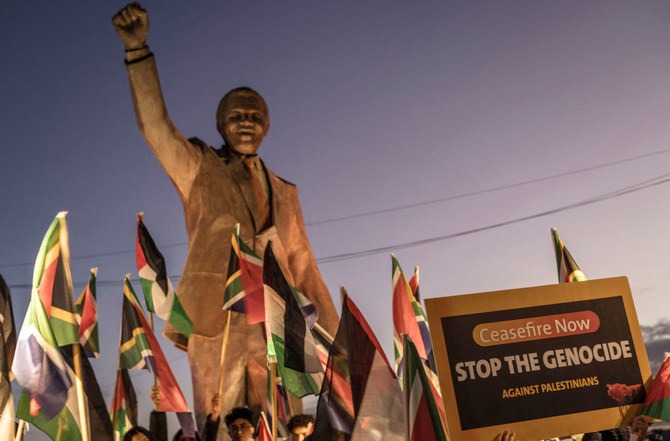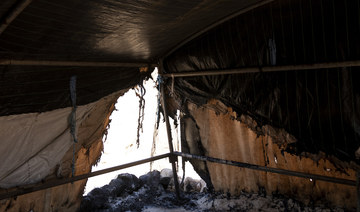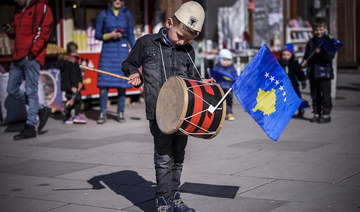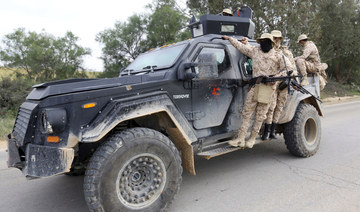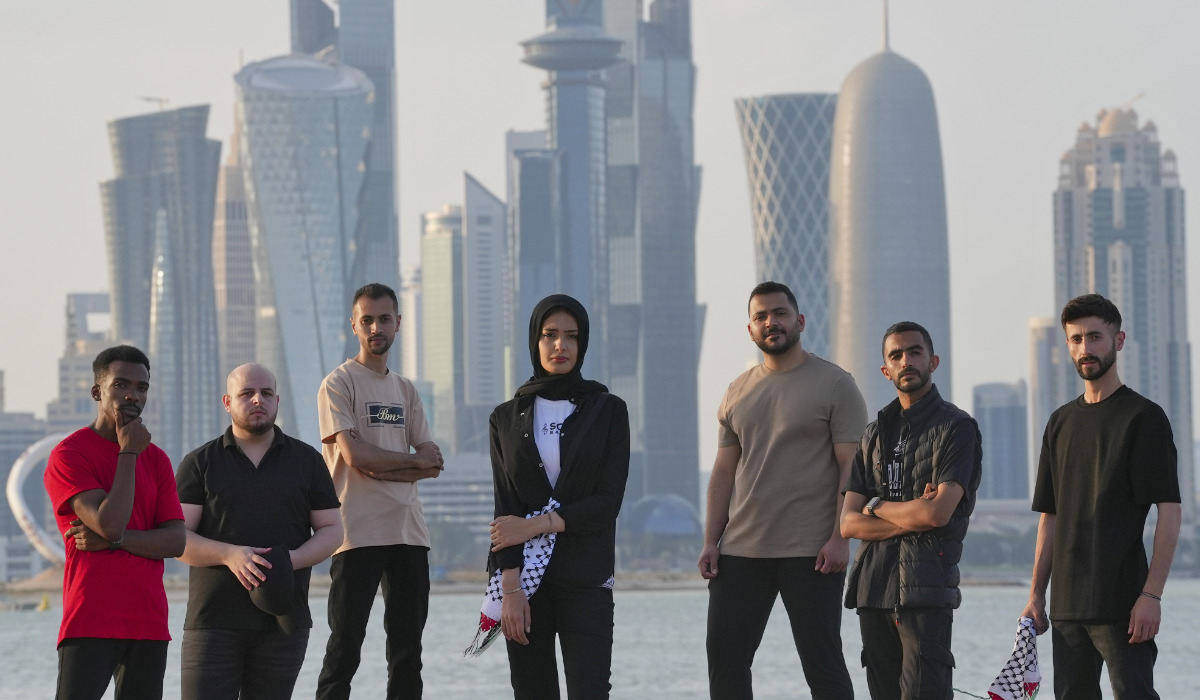RAMALLAH: Palestinians in the occupied West Bank welcomed the case brought by South Africa in the International Court of Justice accusing Israel of genocide, saying the proceedings were an opportunity to hold Israel to account for its military assault in Gaza.
Israel has reacted with outrage at the charges brought against it, describing the accusation as “profoundly distorted” and saying South Africa’s bid to make it halt its offensive against the Hamas movement in Gaza would leave it defenseless.
But for many Palestinians, the charges represent a chance to bring world attention to what they see as Israel’s historic suppression of their fundamental rights, and South African flags were flown in many cities in the West Bank.
“Israel was built upon the crimes it committed against the Palestinian people,” Prime Minister Mohammad Shtayyeh told a rally at Nelson Mandela Square in Ramallah, where marchers defying the winter rains chanted, “Thank you, South Africa!”
Israel said it launched an air and ground offensive to eradicate Hamas, the movement that rules the blockaded strip after the group’s fighters led an attack on Israeli communities.
In the three months since Oct. 7, Palestinian health authorities say more than 23,400 Palestinians, mostly children and women, have been killed in the Israeli bombardment, with some 7,000 believed to be still missing under the rubble.
Israel says the South African case attempts to “weaponize” the term genocide — a word coined by a Polish Jew who witnessed the World War Two Nazi Holocaust against Jews in Europe — delegitimizes the existence of the state of Israel and disregards the responsibility of Hamas.
South Africa told the court on Thursday that Israel’s offensive aimed to bring about “the destruction of the population” of Gaza.
It said Israel’s political and military leaders, including Prime Minister Benjamin Netanyahu, were among “the genocidal inciters.”
Most of Gaza’s 2.3 million people have been forced from their homes in a strip that has been in large part laid waste, where the health system has largely collapsed, and the United Nations says restrictions on food and medical aid deliveries have left thousands hungry and at risk of disease.
“This is a test for humanity,” said Bassam Zakarneh, a member of the Revolutionary Council of the Fatah movement that dominates the Palestinian Authority, which exercises limited self-rule in the West Bank.
The ICJ case comes after two years of escalating violence in the West Bank, where regular army raids have killed hundreds of Palestinians.
At the same time, Jewish settlements in the West Bank have continued to spread, and attacks by groups of armed Jewish settlers on Palestinians have risen sharply, drawing international condemnation even from Israel’s closest allies.
Atieh Jawabra, 68, a former political science professor at Al-Quds University Abu Dis, said he had long been waiting for Israel to appear before an international court for its crimes, which he said go back to the mass expulsion of Palestinians during the 1948 war of Israel’s founding, known as the Nakba.
“Israel, the United States, and the West have put Israel above the law throughout its history,” he said.
But some, like shepherd Issa Taamri, said the case would unlikely change their life.
Israel’s expansion of settlements around the West Bank city of Bethlehem, where he lives, has severely shrunken the area his sheep can graze in, he said.
“The world has been making promises for 75 years to no avail,” he said.



